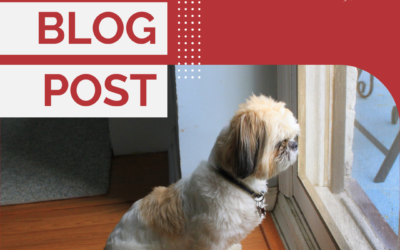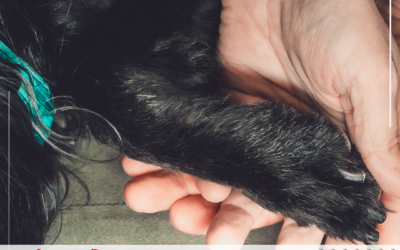Last week I discussed about how major life changes, like a move, can often trigger behavior changes or regressions in areas like separation anxiety or house training. And while moving may be a specific trigger for a regression, regressions, moving or not, are a very normal and expected part of all training, but especially separation anxiety training. In fact, during my initial assessment with a client, I prepare them that almost all separation anxiety clients will have a regression at some point or another. It doesn’t mean training is failing, it’s just a normal part of the learning process. And if my human clients know to expect it and can try to prepare for it, then everyone is better off. I always aim to be transparent with clients. Just like a psychiatrist would be unable to predict a timeline to cure someone’s depression, there’s no way to predict a timeline for your dog’s separation anxiety. Every dog is an individual and there’s many factors that go into each individual case, including your ability to complete the training exercises and suspend absences. The rate of progress is completely determined by your dog and can be slow, particularly at the beginning, but often accelerates as training progresses. I always encourage clients to think in terms of months, not weeks or days when committing to working on separation anxiety with their dog.
Often knowing what to expect can really help clients feel more at ease – knowing there’s nothing wrong with their dog or that they’re not doing anything wrong. This moral support can be extremely important to the human client, knowing they have someone who understands and will help them through it. I tell my clients that “I’m here to celebrate your successes and help you through any rough patches.”
Then we focus on making a plan to help the dog get through the regression. I’ll review all the meticulous data tracking that is kept for every training mission, week by week, combing through it, looking for patterns or any triggers. We’ll talk about any external changes, like new construction or other things that could be throwing the dog off. And then I will adjust the dog’s training to ensure there are some achievable wins, to make sure the dog is staying under threshold and feeling safe and then build on that again. Regressions don’t need to be impassable sinkholes that we can’t come back from – they can be small potholes that we navigate around instead. Working together, setting realistic expectations, for both the human and the dog and adjusting that along the way to help everyone succeed, is all part of my job and part of separation anxiety training.
If your dog is struggling with other types of regressions, like house training, first we’d want to rule out medical issues like UTI. If medical issues have been ruled out then go back to square one, tightening up management and using strict confinement, restricting access to the home, so the dog can’t make mistakes and getting the dog on a strict potty schedule. So this means the dog is either crated, in a pen or tethered to you at all times so the dog cannot sneak off and make mistakes. As soon as the dog comes out of confinement, they immediately go outside for potty and as soon as they go potty, you have a huge celebration and they get rewarded with high value food. Keep this up for at least 3 weeks and if there have been no mistakes, then you can begin to loosen up management.
If your dog is struggling when left alone, reach out today and schedule your assessment. There is hope and I can help rescue you. Separation anxiety training isn’t a quick fix but it is a simple, scientifically proven process and with proper training, this disorder can be resolved or greatly improved. I can help you and your dog’s quality of life, strengthening your relationship and bringing relief to both of you. Don’t you both deserve that?
Happy training!
![]()




